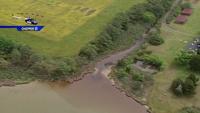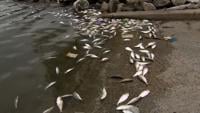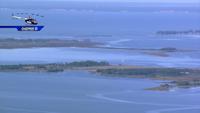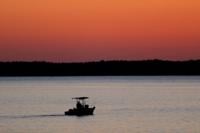Maryland’s Department of Natural Resources (DNR) revealed that dead zones in the bay have slightly increased compared to last year’s record lows.
The Chesapeake Bay is facing a challenging summer, with the spring rain that dumped on Delmarva potentially contributing to the expansion of dead zones within the bay.
The Chesapeake Bay Program says this year’s dead zone in the Chesapeake Bay was the smallest on record, mainly due to pollution reduction and below-average rainfall.
Chesapeake Bay Program researchers and other scientists are predicting a smaller dead zone in the Bay this year due to lower than average rainfall.








